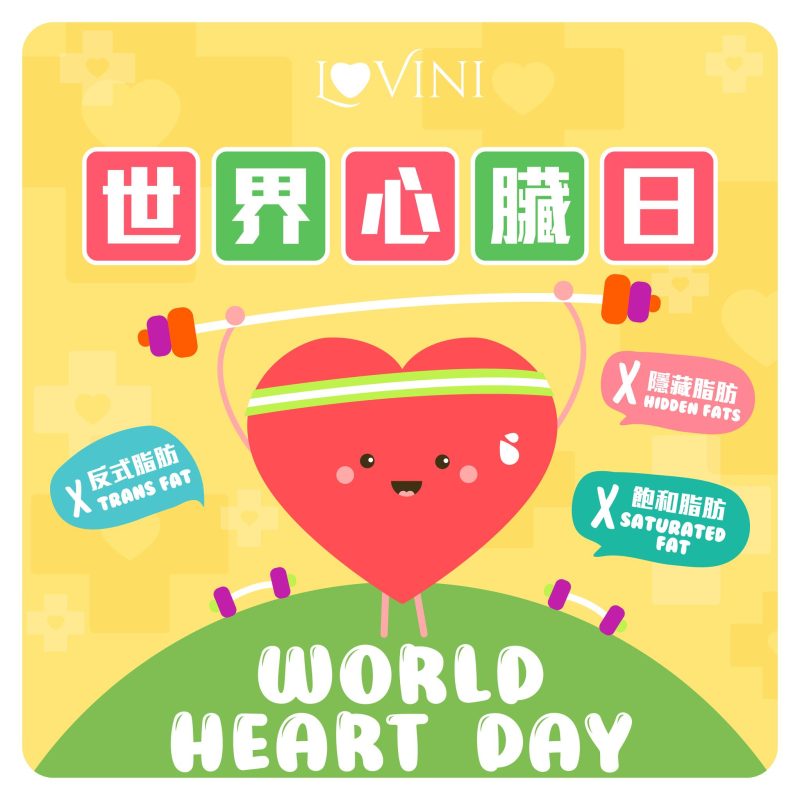Lovini.com
World Heart Day❤️
Cardiovascular disease is closely related to dietary fat intake, especially saturated and trans fat. But did you know there are still other hidden fats in our daily diet that we should pay extra attention to! Let’s learn more about heart health on World Heart Day today!
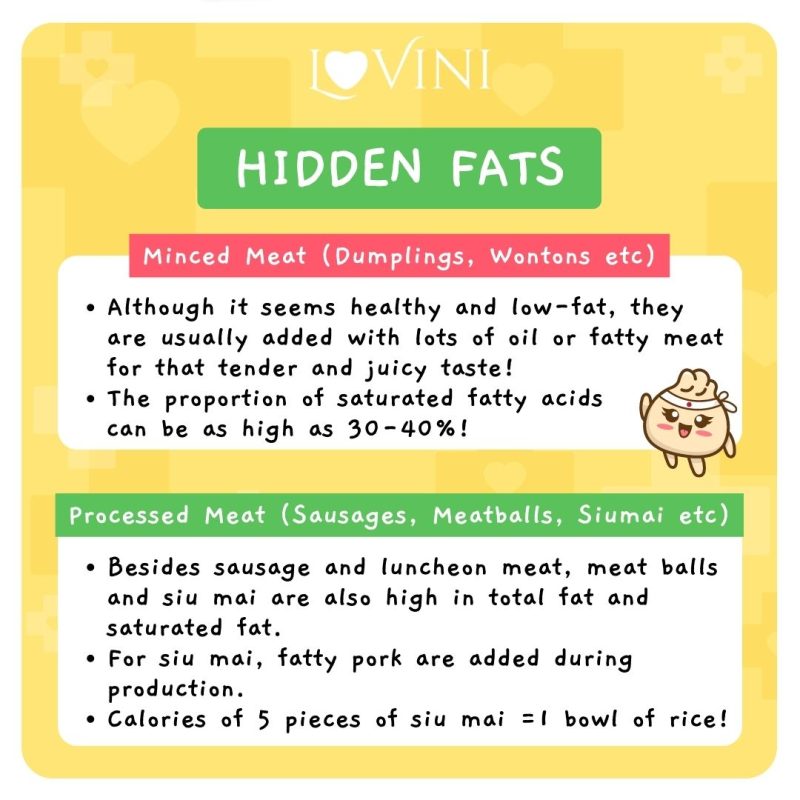
Cardiovascular disease is closely related to dietary fat intake, especially saturated and trans fat. Apart from common sources such as deep-fried foods, skin and fatty meat, there are still other hidden fats we need to pay attention to.
Minced meat products
Though dumpling, wonton, soup dumpling and meat patty are usually boiled and steamed, these foods actually contain quite a lot of fat as more fatty meat has to be used in order to create the juicy texture. Some of these products may contain up to 25-35% of saturated fat.
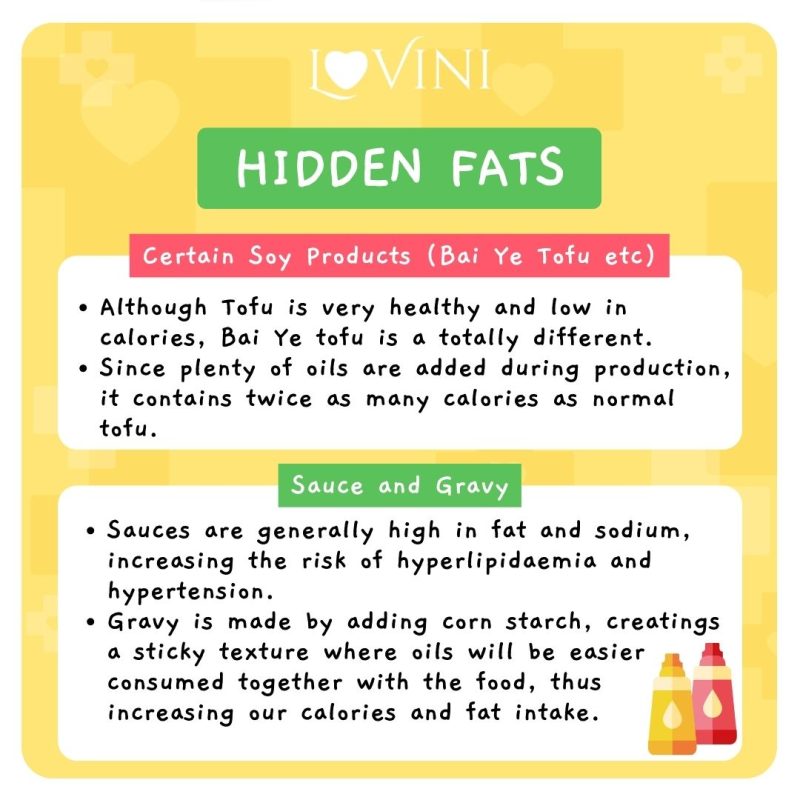
Processed meat
Besides sausage and luncheon meat, meat balls such as pork meat balls, cuttlefish balls and siu mai are also high in total fat and saturated fat. Fatty pork meat or lard are added during production. 5 pieces of siu mai already contain calories equivalent to 1 bowl of rice.
Certain soy products
Tofu itself is very healthy and low in calories. However, Bai Ye tofu is a different story. Since plenty of oils are added during production, it contains twice as many calories as normal tofu. Despite its fresh taste and look for inari sushi, it needs to be deep-fried actually, therefore containing much fat.
Sauces
Sauces are generally high in fat and sodium, increasing the risk of hyperlipidemia and hypertension. And gravy is usually made by adding corn starch. Though it is only carbohydrates, it creates a sticky texture where oils will be easier consumed together with the food, thus increasing our calories and fat intake.
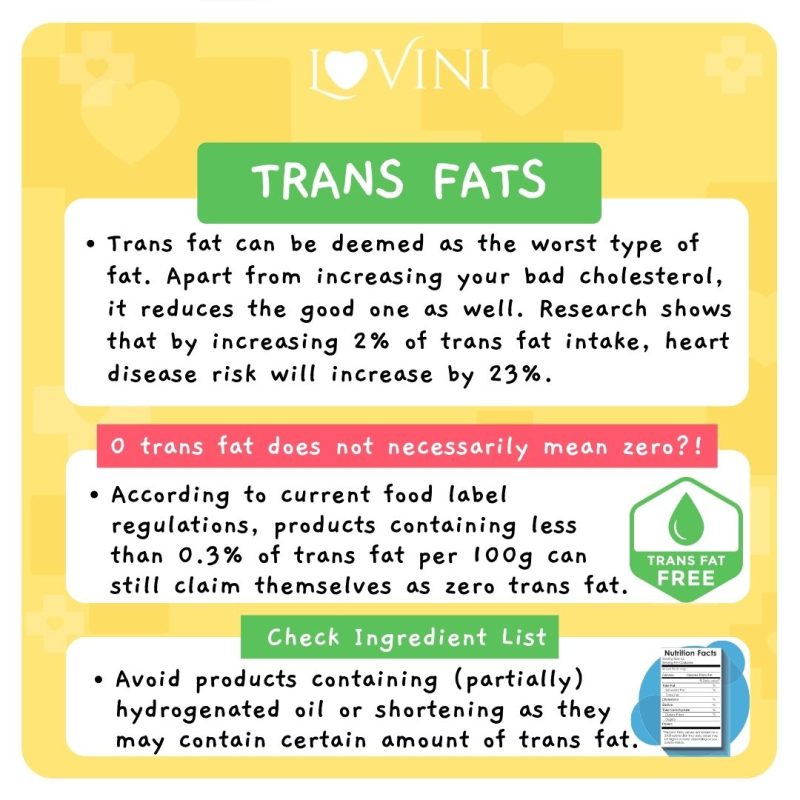
Trans fat can be deemed as the worst type of fat. Apart from increasing your bad cholesterol, it reduces the good one as well. Research shows that by increasing 2% of trans fat intake, heart disease risk will increase by 23%.
It is advised to pay attention to the nutrition label and look for “zero” trans fat. But interestingly, according to current food labeling system in Hong Kong, products containing less than 0.3% of trans fat per 100g can still claim themselves as zero trans fat. So it is better to take a look at the ingredient list as well. Avoid products containing (partially) hydrogenated oil or shortening as they may contain certain amount of trans fat.
The underlying reason of atherosclerosis is that the bad cholesterol is oxidized, leading to the formation of plague. So other than omega-3 fatty acid, there are other nutrients rich in antioxidant which may help prevent cardiovascular disease.
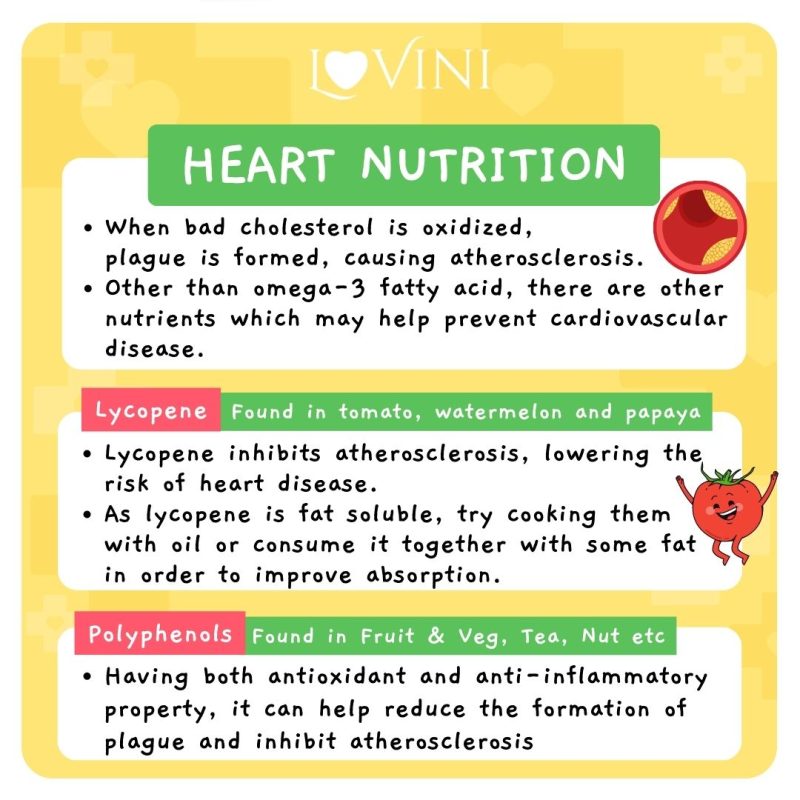
Lycopene
Lycopene inhibits atherosclerosis, lowering the risk of heart disease. It is commonly found in red fruits and vegetables such as tomato, watermelon and papaya. As lycopene is fat soluble, it is recommended to use oil to cook tomato or consume it together with some fat in order to improve absorption.
Polyphenols
Plenty of foods contain polyphenols. For example, fruit and vegetable, soybean, tea, coffee, nuts and spices etc. Having both antioxidant and anti-inflamatory property, it can help reduce the formation of plague and inhibit atherosclerosis.
Reference
- Casas R, Castro-Barquero S, Estruch R, Sacanella E. Nutrition and Cardiovascular Health. Int J Mol Sci. 2018;19(12):3988. Published 2018 Dec 11. doi:10.3390/ijms19123988
- 衛生署食物安全中心 – 營養標籤及營養聲稱技術指引
- 衛生署食物安全中心 – 營養資料查詢

